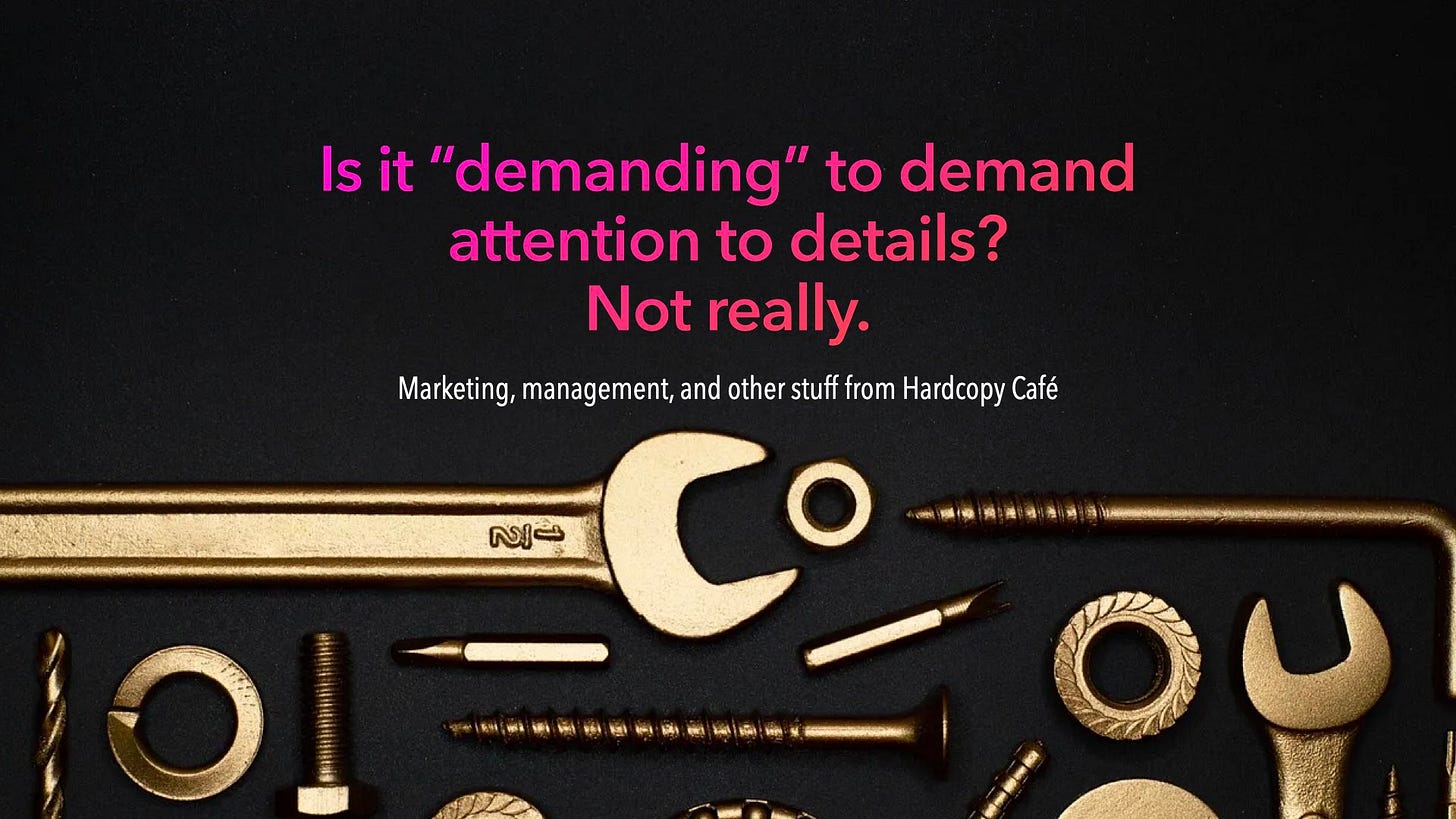Do you need to be so particular about the details of a letter? If there's just one letter missing, will the marketing campaign or program fail? Why should we be so critical?
True. A single letter or detail may not make a campaign fail, but 99% of the time, the mishap won't make it successful or perfect.
Sometimes, a tiny mistake can cause a 1% misunderstanding or even ruin the entire campaign.
Are you willing to take that risk?
Error Margins
Let's put it another way. There are a lot of details in a marketing campaign, and every detail can go wrong; most of the time, one or two mistakes don't necessarily mean the campaign is doomed.
Why? Whether in planning or execution, we leave margins for error in every step, intentionally and unintentionally. When there is a temporary gap in human work, other responsible colleagues would fill it voluntarily; when there is a gap in the execution, we will improvise to overcome the difficulties and get the job done smoothly.
That’s “margins for error” that exist naturally. But there are a few prerequisites:
Plan as carefully as possible, and don't leave too many loopholes “in advance” (or even “on purpose”);
Colleagues are familiar with each other's responsibilities and job content, and they are willing to take the initiative to “cover each other's backs”;
Leave room for error (e.g., allow for flexible time) in job responsibilities or activity design, or design a contingency plan.
The three points may seem like a no-brainer, but if you think about it the other way around, you'll realize where many problems lie. For example, if colleagues do nothing when a problem arises or even pass the buck to each other, a small problem can become something unmanageable.
Not “laziness margins”
Although “error margins” usually exist naturally, it doesn't mean you can be confident and treat it as “laziness margins” where things can be taken lightly or for granted.
So why should we be so hard on such “tiny” things? If you don't, will the project fail?
Maybe a tiny bit wouldn't matter, but if it’s in a system prone to fail, it has the potential to escalate into something big.
You take a few random screws out of an engine and drive the car down the road. As a rule of thumb, you'll be fine, but the chances of being “fine” and “not fine” without scientific evaluation (which screws did you remove?) are 50/50 or worse.
If you're fine, you're lucky, but if you're not, you deserve it; the longer you drive, the higher the chance of it acting up.
This is one of the reasons why many people like to say, “Every screw must be tightened,” or “The screws on the (you name it) are loose.” We all know that it's okay to have one screw missing, but that one insignificant screw can cause the entire system to fail.
So is it “demanding” to “tighten every screw”? I don't think so.
The more screws (checkpoints) you have, and the tighter you tighten them (technically “with the right force”), the more fault-tolerant the system will be, and the less likely it is to fall apart.
The two “margins” conflict
Although some people turn “margins” into an excuse for “laziness,” it’s obvious that the two are opposites.
“Laziness” loosens a system, and a loose system leaves less room for real margins.
If you are just a screw in the system, you may wonder, “Is it that serious,” or think, “I am fine with it”; however, if you look at it from the system perspective and take the overall work quality and the error margins into account, you’ll know that every detail is important.










